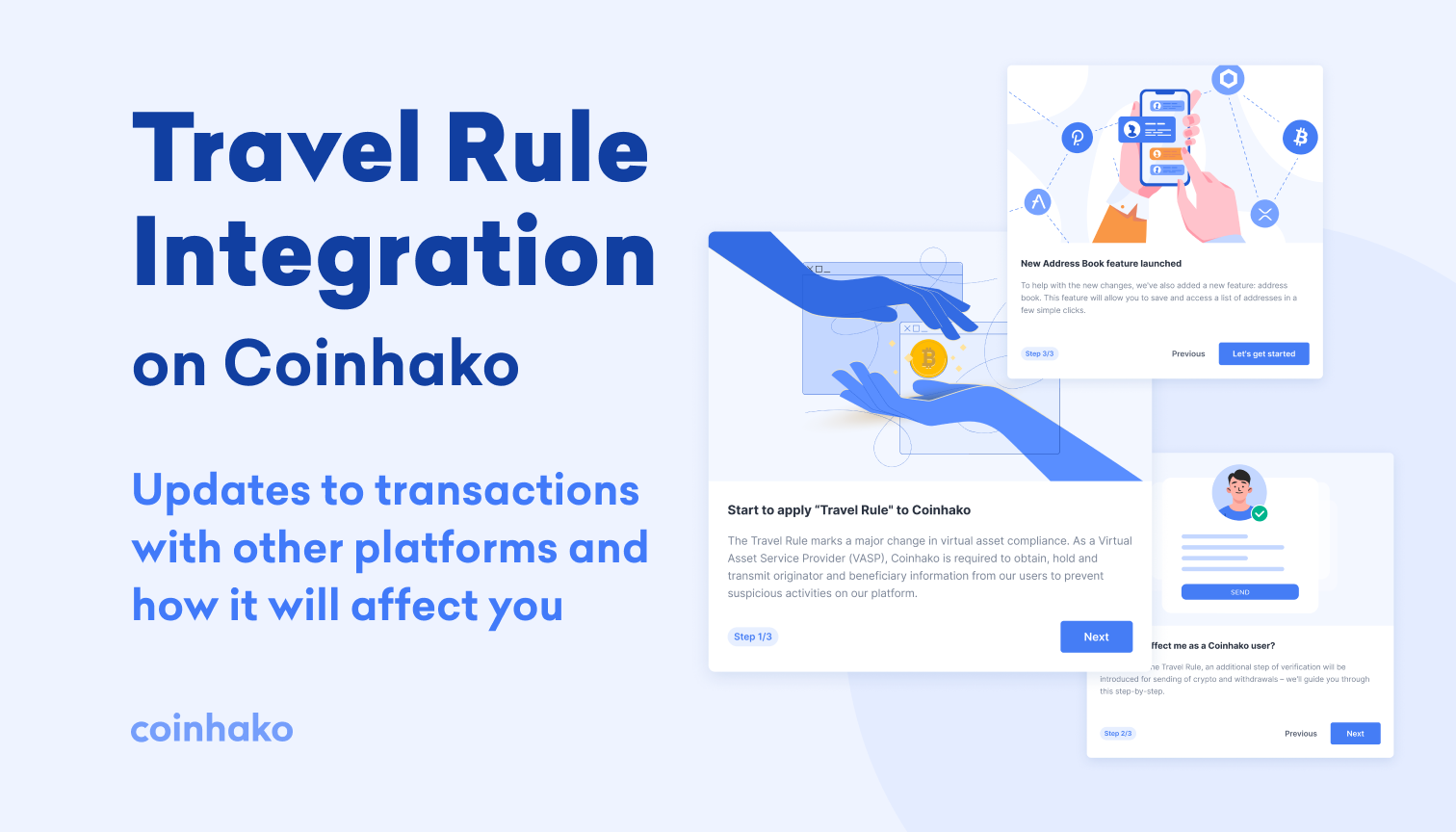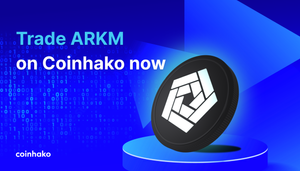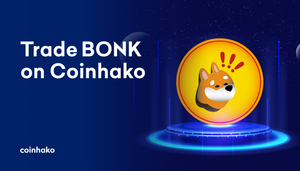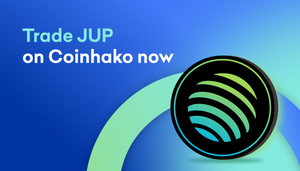With cryptocurrencies gaining momentum worldwide, there comes a need for global regulations to ensure a safe and accountable ecosystem for all.
By now, you may have already heard about the Travel Rule, a set of guidelines proposed by the Financial Action Task Force (FATF) as an Anti Money Laundering and Counter Financing Terrorism (AML-CFT) measure.
Countries like Japan and Switzerland have since adopted the Travel Rule, as early as its inception in June 2019.
👉 You can read more about the Travel Rule HERE
In compliance with these guidelines, Singapore issued a notice on the prevention of money laundering and countering the financing of terrorism under its Payment Services Act (PS Act), issued in 2020.
How will Coinhako comply with the Travel Rule?
In recent months, Coinhako has introduced measures to comply with both local and global efforts, relating to the prevention of Money Laundering and Countering the Financing of Terrorism.
With effect from 27 April 2022, Coinhako will introduce some additional measures that will affect the way you transfer tokens on our platform.
Coinhako Singapore users will also need to verify their non-custodial wallet address before sending or receiving any crypto. This is part of Coinhako’s Travel Rule integration efforts to align with both local and global regulations.
Incoming Travel Rule measures and how they will affect you
To comply with the Travel Rule, Coinhako Singapore users will be required to prove ownership of their personal (non-custodial wallets). This can be done in two ways, via the Satoshi Test or Signature method.
From 27 April 2022, Coinhako will only support withdrawals (“Send”) to Travel Rule compliant Virtual Asset Service Providers (VASPs) and verified personal wallets. We will provide guides for supported Travel Rule withdrawal options as more options are integrated on Coinhako.
For incoming crypto deposits (“Receive”), users will also have to declare the source of their deposit and provide the supplementary information, if they are transferring tokens from non-Travel Rule-compliant platforms or unverified personal wallets. Incoming crypto deposits originating from a Travel Rule compliant VASP will be processed without further action from our users.
Deposits originating from personal wallets (non-custodial) will require verification using the Satoshi Test or Signature Method.
What are non-custodial wallets?
Non-custodial wallets are wallets where users self-manage their private keys. This differs from an exchange or trading platform, like Coinhako, where the platform is in charge of managing the custody and security of your funds.
Verifying your non-custodial wallet address on Coinhako
- The Satoshi Test
- Signature Method
- Satoshi Test
The Satoshi Test is a method that allows Coinhako to verify you are in direct and complete control of a wallet address.
In order to verify that you have control of a wallet, Coinhako requests you to send a specific amount of tokens (usually a small amount) to your Coinhako wallet. The address is verified after these tokens have been received in your Coinhako account.
2. Signature Method
The wallet signing method allows users to verify their non-custodial wallet addresses by simply connecting their wallets to Coinhako’s verification site and providing their signature.
Users who opt for the Signature Method can connect their wallets in two ways:
MetaMask is a web browser extension that serves as a wallet for Ether (ETH) and ERC-20 tokens. To use this method of verification, you must already have your non-custodial wallet on MetaMask, as well as the MetaMask extension installed on your browser.
WalletConnect is an open protocol that connects blockchain wallets seamlessly to dApps. It supports a variety of wallets, including MetaMask, Trust Wallet and Ledger Live.
While we understand that these updates may appear inconvenient, such measures go a long way in helping us ensure the continuity of our services for you.
Need help navigating the new changes? 👉 Click here for more information about the Travel Rule.
**Virtual Asset Service Providers (VASPs) refer to entities that provide services relating to virtual assets, such as offering an exchange between virtual assets and fiat currencies, exchange between different forms of virtual assets, transfer of virtual assets such as moving a virtual asset from one address or account to another, providing custodian wallet services and participating in and providing financial services related to an issuer's offer and/or sale of a virtual asset.
📩 Sign-up to Subscribe to our mailing list to have them delivered straight to your inbox!
👉Join our Telegram community
🤔If you have any enquiries, you may contact us here or you can visit our Information Page.
Copyright © Coinhako 2023 All Rights Reserved. Read more on our terms of use of this blog.
All opinions expressed here by Coinhako.com are intended for educational purposes, taken from the research and experiences of the writers of the platform, and should not be taken as investment or financial advice.






